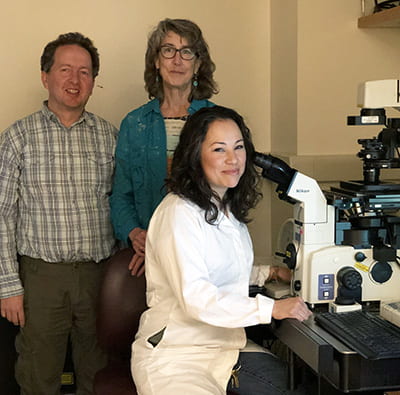In experiments with worms, researchers showed that epigenetic marks on sperm chromosomes affect gene expression and development in offspring
UCSC.edu | March 20, 2019 | Tim Stephens
As an organism grows and responds to its environment, genes in its cells are constantly turning on and off, with different patterns of gene expression in different cells. But can changes in gene expression be passed on from parents to their children and subsequent generations? Although indirect evidence for this phenomenon, called “transgenerational epigenetic inheritance,” is growing, it remains controversial because the mechanisms behind it are so mysterious.
Now researchers at UC Santa Cruz have demonstrated that epigenetic information carried by parental sperm chromosomes can cause changes in gene expression and development in the offspring. Their study, published March 20 in Nature Communications, involved a series of clever experiments using the nematode worm Caenorhabditis
Epigenetic changes do not alter the DNA sequences of genes, but
In their experiments with C.

